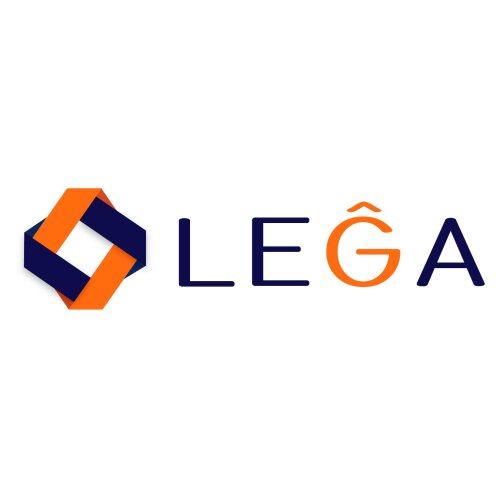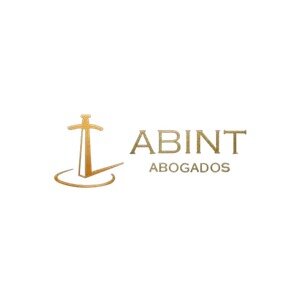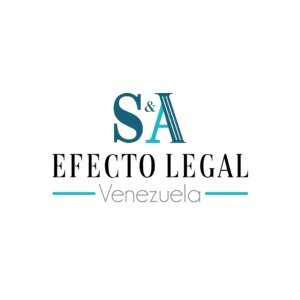Best Corporate Governance Lawyers in Venezuela
Share your needs with us, get contacted by law firms.
Free. Takes 2 min.
Or refine your search by selecting a city:
List of the best lawyers in Venezuela
About Corporate Governance Law in Venezuela
Corporate governance in Venezuela refers to the frameworks, practices, and rules that dictate how companies are managed, directed, and controlled. These laws and practices ensure that corporations run responsibly and transparently, balancing the interests of shareholders, management, customers, suppliers, financiers, government, and the community. In Venezuela, corporate governance is shaped by a mix of statutory law, commercial codes, stock exchange regulations, and best practice guidelines. Sound corporate governance aims to ensure proper decision-making, safeguard investments, and build public trust in the country's corporate sector.
Why You May Need a Lawyer
Lawyers who specialize in corporate governance are invaluable for navigating the often complex and evolving landscape of business law in Venezuela. Here are common situations when engaging a legal expert is crucial:
- Establishing a new company or joint venture
- Ensuring compliance with local regulations and reporting obligations
- Drafting and revising corporate bylaws or articles of incorporation
- Managing shareholder disputes or conflicts between directors
- Handling mergers, acquisitions, or restructurings
- Investigating or reporting fraud, corruption, or other violations
- Dealing with administrative sanctions or enforcement actions by regulators
- Adapting to changes in corporate governance standards under law revisions
In these scenarios, a lawyer can help avoid costly errors, reduce exposure to liability, and protect the long-term reputation and health of the business.
Local Laws Overview
Corporate governance in Venezuela is primarily governed by the Commercial Code, the Civil Code, and special laws such as the Capital Markets Law. Key considerations include:
- Legal Structure of Companies: Most businesses are registered as either Sociedad Anónima (S.A.), a joint-stock company, or Sociedad de Responsabilidad Limitada (S.R.L.), a limited liability company. Each structure comes with different governance requirements.
- Board of Directors: S.A. companies are required to have a board of directors, whose members owe fiduciary duties to the company and its shareholders. The roles, responsibilities, and liabilities of directors are defined in the company’s bylaws and applicable law.
- Shareholders’ Rights: Shareholders have rights to participate in general meetings, receive information, vote on significant decisions, and inspect company records. Minority protections exist, but enforcement can be challenging.
- Reporting and Disclosure: Companies must maintain accurate accounting records and present annual financial statements for shareholder approval. Publicly traded companies face additional disclosure and audit obligations.
- Related-Party Transactions and Conflict of Interest: Directors must disclose any conflicts of interest and abstain from voting in related matters to maintain transparency and avoid liability.
- Regulatory Oversight: The National Superintendence of Securities (Superintendencia Nacional de Valores) supervises listed companies. For certain industries, other sectoral regulators may also apply.
- Anti-Corruption and Ethics: Legal frameworks prohibit bribery, fraud, and other unethical conduct, both domestically and in international operations.
Frequently Asked Questions
What is the primary law governing corporate governance in Venezuela?
The main laws are the Commercial Code and the Civil Code, complemented by the Capital Markets Law for publicly traded companies. These set the framework for company formation, management, shareholder rights, and corporate responsibility.
Who regulates compliance with corporate governance standards?
The primary regulator is the National Superintendence of Securities for publicly traded companies. Other sector-specific authorities and local business registries also play roles in oversight.
What are the main duties of directors in Venezuelan companies?
Directors are expected to act diligently, loyally, and in the best interests of the company. They must avoid conflicts of interest, ensure accurate record keeping, and comply with all applicable laws.
Are there special requirements for foreign shareholders?
Foreign investors may participate as shareholders, though certain sectors have restrictions or require special authorizations. They must comply with the same corporate governance obligations as local investors.
How are shareholder disputes typically resolved?
Most disputes are resolved through negotiation, mediation, or arbitration, often as stipulated in the company's bylaws. Courts may intervene if internal mechanisms fail.
What reporting obligations do companies have?
All companies must maintain accounting records, prepare annual financial statements, and hold annual shareholder meetings for approval. Public companies face additional audit and disclosure requirements.
Can one person be both shareholder and director?
Yes, especially in closely held companies. However, this can raise conflict of interest issues and is subject to disclosure obligations.
What happens if a company fails to comply with governance laws?
Non-compliance can result in administrative sanctions, fines, annulment of corporate actions, and personal liability for directors. In serious cases, it can lead to dissolution of the company.
Are there any anti-corruption requirements?
Venezuela has various anti-corruption laws and codes of conduct under which bribery, fraud, and abuse of authority are criminal offenses. Companies must have policies to prevent such conduct.
How can companies improve their corporate governance?
Best practices include adopting clear bylaws, holding regular and transparent meetings, timely reporting, implementing internal controls, and seeking legal advice to adapt to changing regulations.
Additional Resources
You may find the following resources helpful for understanding or navigating corporate governance in Venezuela:
- National Superintendence of Securities (Superintendencia Nacional de Valores) - Main securities market regulator
- Public Registry Offices (Registros Mercantiles) - For company incorporation and bylaw amendments
- Ministry of Popular Power for Economy and Finance
- Venezuelan Chamber of Commerce (Cámara de Comercio de Caracas)
- Professional legal associations such as the Colegio de Abogados
Next Steps
If you require legal assistance with a corporate governance issue in Venezuela, take the following steps:
- Gather all relevant documents, such as company bylaws, shareholder agreements, and corporate records
- Identify the specific issue or question you need help with
- Seek out a specialized corporate or business law attorney with experience in Venezuelan corporate governance
- Arrange an initial consultation to discuss your needs and determine the best approach
- Stay informed about changes in local laws and regulations that may affect your company’s governance
Taking prompt and informed action with legal guidance can help protect your interests and ensure your business’s compliance with Venezuelan regulations.
Lawzana helps you find the best lawyers and law firms in Venezuela through a curated and pre-screened list of qualified legal professionals. Our platform offers rankings and detailed profiles of attorneys and law firms, allowing you to compare based on practice areas, including Corporate Governance, experience, and client feedback.
Each profile includes a description of the firm's areas of practice, client reviews, team members and partners, year of establishment, spoken languages, office locations, contact information, social media presence, and any published articles or resources. Most firms on our platform speak English and are experienced in both local and international legal matters.
Get a quote from top-rated law firms in Venezuela — quickly, securely, and without unnecessary hassle.
Disclaimer:
The information provided on this page is for general informational purposes only and does not constitute legal advice. While we strive to ensure the accuracy and relevance of the content, legal information may change over time, and interpretations of the law can vary. You should always consult with a qualified legal professional for advice specific to your situation.
We disclaim all liability for actions taken or not taken based on the content of this page. If you believe any information is incorrect or outdated, please contact us, and we will review and update it where appropriate.
Browse corporate governance law firms by city in Venezuela
Refine your search by selecting a city.















